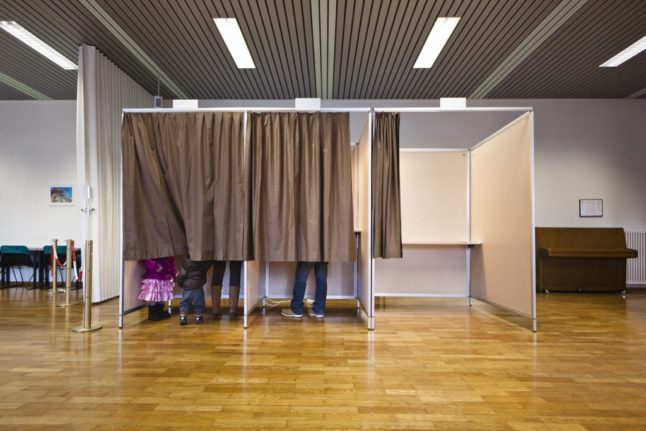There are currently 2.2 million foreign nationals living in Switzerland — roughly 25 percent of the population.
Simply put, everyone residing in the country legally, regardless of nationality, has the same basic constitutional rights as Swiss citizens do — for instance, the right to human dignity, free expression, equality, protection against discrimination, and freedom of religion, among other rights.
They also have the right to fair and equitable treatment in the workplace, in terms of wages, work hours, and other employment-related matters.
As the law states, cantons and municipalities “shall create favourable regulatory conditions for equal opportunities and for the participation of the foreign population in public life”.
If they are arrested or imprisoned, foreigners also have the right to fair trial and to the same treatment as their Swiss-citizen counterparts, including legal representation and due process of the law.
Even those who are subject to deportation have the right to be represented by a lawyer.
And the Swiss legal system doesn’t necessarily favour Swiss litigants over foreign ones. For instance, in some cases, foreign nationals whose request for naturalisation was denied but who then appealed the decision, eventually won.
The most recent example is a man in the canton of Schwyz whose application for citizenship was rejected due to a minor car accident, but a Swiss court overturned the decision, ordering that the man be naturalised this year.
READ MORE : Foreigner wins appeal after being denied Swiss citizenship due to car accident
Where the rights and privileges differ between foreigners and Swiss, as well as among foreigners themselves, is when it comes to work and residency rights.
EU / EFTA nationals
People from these countries, who have B or C permanent residence status have sweeping rights in terms of residence, employment (including self-employment), and home ownership.
The only right that is denied them is the vote, though some cantons and communes grant their resident foreigners the right to vote on local issues and to elect local politicians.
READ MORE : Where in Switzerland can foreigners vote?
Apart from the limit on political participation, EU / EFTA nationals can live in Switzerland in pretty much the same way as their Swiss counterparts.
There are, however, some groups of foreigners whose rights are curtailed by the Swiss government.
Third country nationals
They are people from countries outside Europe, for whom various restrictions are in place in terms of entry, employment and residency.
For instance, their “future employer must prove that there is no suitable person to fill the job vacancy from Switzerland or from an EU/EFTA state”, according to State Secretariat for Migration. This could be seen as a discrimination of sorts, but that’s what the law says.
Once employed, however, “their salary, social security contributions and the terms of employment must be in accordance with conditions customary to the region, the profession and the particular sector” — in other words, no discrimination is allowed.
Another area where non-European foreigners are disadvantaged in comparison with their EU / EFTA counterparts is home ownership. While third-nation B-permit holders can buy a property to live in (but not rent out), they can’t purchase a holiday or second home without a special permission.
To sum up, all foreigners in Switzerland, regardless of their status, are entitled to fundamental “human” rights, including freedom of speech and religion, and freedom from discrimination in life and employment.
They also have the right to legal protection and representation during litigation or other court actions.
However they don’t have the right to participate in the country’s political process and, depending on their status, have equal access to residency and employment.



 Please whitelist us to continue reading.
Please whitelist us to continue reading.
Member comments